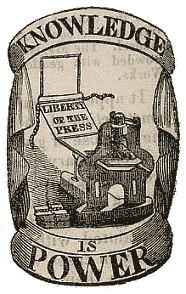



During former president Bush's administration the Iranian regime was called the "Axis of Evil", and there was a lot of talk about sanctions. The sanctions were supposed to deter Iran from developing a nuclear weapon.
But the sanctions were not really effective in motivating either the people or the regime to stop their nuclear quest.
Perhaps the reason the sanctions did not motivate the people of Iran to put pressure on their leaders to stop short of making fissionable material for a nuclear warhead. Was the fact that the sanctions did not include food stuffs, medical supplies and many other items of commerce. These ARE considered "humanitarian" aid.
My question is what good is it going to do if you allow the supposed enemy, who has sworn to eliminate Israel and the USA, to buy food supplies from US when we are faced with rising costs for products made of grains like wheat and soy beans?
Talk about sanctions is cheap! Real sanctions to be effective must include an embargo on all products. Especially when Americans are paying over $3.00 for a loaf of bread, and cereal products have doubled in price in the past year.
I remember when I was a child and milk prices got so low in the years following the great depression. The farmers started dumping milk, and the federal government started buying up butter and storing it in caves to bring the price up.
This analogy has very little to do with what is going on with Iran, as Iran is our sworn enemy by their own admission. But it appears that the government appears to be more concerned with finding markets for farmers than in bringing pressure on the Mullahs!
This article was found in FoxNews.com: "Iran spent nearly twice as much on U.S. imports during President Barack Obama's first months in office as it did during the same period in 2008, showing that despite trade penalties and tense relations, the two countries are still doing business.
The U.S. exported $96 million in goods to Iran from January through April, according to an Associated Press analysis of U.S. government trade data compiled by the World Institute for Strategic Economic Research in Holyoke, Mass. U.S. exports to Iran totaled $51 million during the same period in 2008 and $27 million over those months in 2007.
Soybeans, wheat and medical supplies -- all considered humanitarian items exempt from U.S. trade sanctions -- are among the top exports this year.
The latest trade figures reflect an increase in Iran's agricultural imports over the past year due to poor harvests there, said Bill Reinsch, president of the National Foreign Trade Council, a business group in Washington.
"I wouldn't read too much into it as far as trends are concerned," Reinsch said. Of course he would say this, or he would go the way of Special prosecutor Walpin!
Reinsch said he is hearing from more businesses interested in Iran. But beyond an effort by the Obama administration to encourage talks with Iran, he hasn't seen any policy changes that would lead to more opportunities for U.S. businesses.
Several countries have been more than willing to do business with Iran. Those exporting more than $1 billion in goods to Iran last year included China, $8 billion; Germany, $5.7 billion; Italy, $3.2 billion; France, $2.6 billion; and Japan, $1.9 billion.
That compares with about $747 million in exports to Iran by Britain, $689 million by Belgium, about $685 million by Spain and $683 million by the U.S.
It can be difficult to stop even sensitive goods and technology from making their way to another country. It is common for Iran and other sanctioned countries to use transshipment points such as the United Arab Emirates to try to obtain U.S. goods undetected.
The value of U.S. exports to Iran rose exponentially under Bush, even as he called the country part of an "axis of evil." In 2001, Bush's first year in office, they totaled just $8.3 million, a tiny fraction of last year's number.
Exports during the Bush years included a range of agricultural products and medical supplies, but some more surprising items also made it to Iran: brassieres, fur clothing, sculptures, perfume, musical instruments and military apparel.
Humanitarian shipments are an example of the tricky line the United States has walked in dealing with Iran -- even more so during Iran's election protests. Esprcially since Obama has taken a hands off stance on the violence in the Iranian streets!








No comments:
Post a Comment